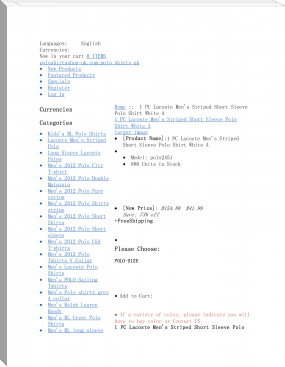The Ghost Kings - H. Rider Haggard (moboreader TXT) 📗

- Author: H. Rider Haggard
Book online «The Ghost Kings - H. Rider Haggard (moboreader TXT) 📗». Author H. Rider Haggard
So Tamboosa went into the cave with one other man, and talked to Rachel, who sat staring at him with stony eyes as though she understood nothing. When at length he ceased, however, she cried:
"Lead me to Noie at the Great Place. Lead me to Noie," nor would she say any more.
So, as the people of Mafooti had fled they knew not where, and they had secured some of the cattle, and as many of the soldiers were sick from the cold and burns received in the fire, Tamboosa told the regiment that it was the will of the Inkosazana that they should return to Zululand.
A while later they started, those of them who were so badly burned that they could not travel, being carried on shields. But Rachel would not be carried, choosing to walk alone surrounded at a distance by a ring of soldiers who guarded her. For hours she walked thus, showing no sign of weariness, but now and again bursting out into shrill laughter, as though she saw things that moved her to merriment. Only the regiment that listened was not merry, for it had heard the words that the Inkosazana spoke in the town of Mafooti, foretelling evil to the Zulus because of the blood that was between them and her. They thought that she laughed over the misfortunes that were to come, and over those that had already befallen them in the fire and in the rain.
About midday they halted to eat, and as before Rachel took food in plenty, for now that her mind was wandering her body seemed to call for sustenance. When their meal was finished they moved down to the banks of the Buffalo River, which ran near by, to find that it was in great flood after the heavy rain and that it was not safe to try the ford. So they determined to camp there on the banks, murmuring among themselves that all went ill with them upon this journey, as was to be expected, and that they would have done better if they had spent the time in hunting down the people of Mafooti, instead of sitting idle like tired storks upon the banks of a river. Yet bad as things might seem, they were destined to be worse, for while some of them were cutting boughs and grass to make a hut for the Inkosazana, Rachel, who stood watching them with empty eyes, of a sudden laughed in her mad fashion, and sped like a swallow to the lip of the foaming ford. Here, before they could come up with her, she threw off the outer cloak she wore and rushed into the water till the current bore her from her feet. Then while the whole regiment shouted in dismay, she began to swim, striking out for the further bank, and being swept downwards by the stream. Now Tamboosa, who was almost crazed with fear lest she should drown, called out that where the Inkosazana went, they must follow, even to their deaths.
"It is so!" answered the soldiers, as each man locking his arms round the middle of him who stood in front, company by company, they plunged into the water in a fourfold chain, hoping thus to bridge it from bank to bank.
Meanwhile Rachel swam on in the strength of her madness as a woman has seldom swum before. Again and again the muddy waters broke over her head and the soldiers groaned, thinking that she was drowned. But always that golden hair reappeared above them. A great tree swept down upon her but she dived beneath it. She was dashed against a tall rock, but she warded herself away from it with her hands and still swam on, till at length with a shout of joy the Zulus saw her find her feet and struggle slowly to the further bank. Yes, and up it till she reached its crest where she stood and watched them idly as though unconscious of the danger she had passed, and of the water that ran from her hair and breast.
"Where a woman can go, we can follow," said some, but others answered:
"She is not a woman, but a spirit. Death himself cannot kill her."
Now the fourfold chain was near the centre of the ford, when suddenly those at the tip of it were lifted from their feet as Rachel had been, nor could those behind hold on to them. They were torn from their grasp and swept away, the most of them never to be seen again, for of these men but few could swim. Thrice this happened until strong swimmers were sent to the front, and at length these men won across as Rachel had done, and caught hold of the stones on the further side, thus forming a living chain from bank to bank, whereof the centre floated and was bent outwards by the weight of the water as the back of a bow bends when the string is drawn.
By the help of this human rope thus formed the companies began to come over, supporting themselves against it, till presently the strain and the push of them and of the angry river overcame its strength, and the chain burst in the middle so that many were borne down the stream and drowned. Yet with risk and toil and loss it joined itself together again and held fast until every man was over, save the sick and some lads who were left to tend them and the cattle on the further bank. Then that cable of brave warriors began to struggle forward like a great snake dragging its tail after it, and, so by degrees drew itself to safety and gasping out foam and water saluted the Inkosazana where she stood.
Many were drowned, and others were bruised by rocks, but of this they thought little since she was safe and they had found her again, to have lost whom would have been a shame from generation to generation. She watched the captains reckoning up the number of the dead, and when Tamboosa and some of them came to make report of it to her, a shadow as of pity floated across her stony eyes.
"Not on my head," she cried, "not on my head! There is blood between the Inkosazana and her people of the Zulus, and that blood avenges itself in blood," and she laughed her eerie laugh.
"It is true, it is just, O Queen," answered Tamboosa solemnly; "the nation must pay for the sin of its children as the wild beast, Ibubesi, has paid for his sins."
Then as they could travel no further that day, they built a hut, and lit a great fire by which Rachel sat and dried herself, nor did she take any harm from the water, for as the Zulus had said, it seemed as though nothing could harm her now.
The soldiers also lit fires and despatched messengers to neighbouring kraals commanding them to bring food, and to send maidens to attend on the Inkosazana, while others went to a mountain to call all this ill-tidings from hill to hill till it came to the Great Place of the King.
CHAPTER XVIII(THE CURSE OF THE INKOSAZANA)
That night the regiment and Rachel slept upon the bank of the river, and nothing happened save that lions carried off two soldiers, while two more who had been injured against the rocks, died. Also others fell sick. On the following morning food arrived in plenty from the neighbouring kraals, and with it some girls of high birth to attend upon the Inkosazana.
But with these Rachel would have nothing to do, and when they came near to her only said:
"Where is Noie, daughter of Seyapi? Lead me to Noie."
So they began their march again, Rachel walking as before in the centre of a ring of soldiers, and that night slept at a kraal upon a hill. Here messengers from the King met them charged with many fine words, to which Rachel listened without understanding them, and then scared them away with her laughter. Also they brought a beautiful cloak made of the skins of a rare white monkey, and this she took and wrapped herself in it, for she seemed to understand that her clothes were ragged.
That day they passed through fertile country, where much corn was grown. Here they saw a strange sight, for as they went clouds seemed to arise in the sky from behind them, which presently were seen to be not clouds, but tens of millions of great winged grasshoppers that lit upon the corn, devouring it and every other green thing. Within a few hours nothing was left except the roots and bare branches, while the women of that land ran to and fro wailing, knowing that next winter they and their children must starve, and the cattle lowed about them hungrily, for the locusts had devoured all the grass. Moreover, having eaten everything, these insects themselves began to die in myriads so that soon the air was poisoned. The waters were also poisoned with their dead bodies, and at once sickness came which presently grew into a pestilence.
Now the men of the country sent a deputation to the Inkosazana, praying her to remove the curse, but when they had spoken she only repeated the words she had used upon the banks of the Buffalo River.
"Not on my head, not on my head! There is blood between the Inkosazana and her people of the Zulus. Famine and war and death upon the people of the Zulus because they have shed the holy blood!"
Then the men grew afraid and went away, and the regiment marched on accompanied by the myriads of the locusts that wasted all the land through which they passed.
At length, followed by a wail of misery, they came to the Great Place and entered it, preceded by the locusts which already were heaped up in the streets like winter leaves, and for lack of other provender gnawed at the straw of the huts, and the shields and moochas of the soldiers. It was a strange sight to see the men trying to stamp them to death, and the women and children rushing to and fro shrieking and brushing them from their hair.
Amid such scenes as these they passed through the town of Umgugundhlovu into which Rachel had been brought in order that the people might see that their Inkosazana had returned, and on to that kraal upon the hill, where she had spent all those weary weeks until Richard came. She reached it as the sun was setting, and although she did not seem to know any of them was received with joy and adoration by the women who had been her attendants. Here she slept that night, for they thought that she must be too weary to see the King at once; moreover, he desired first to receive the reports of Tamboosa and the captains, and to learn all that had happened in





Comments (0)